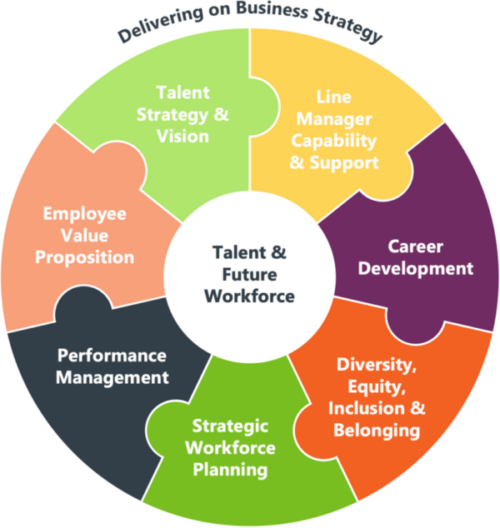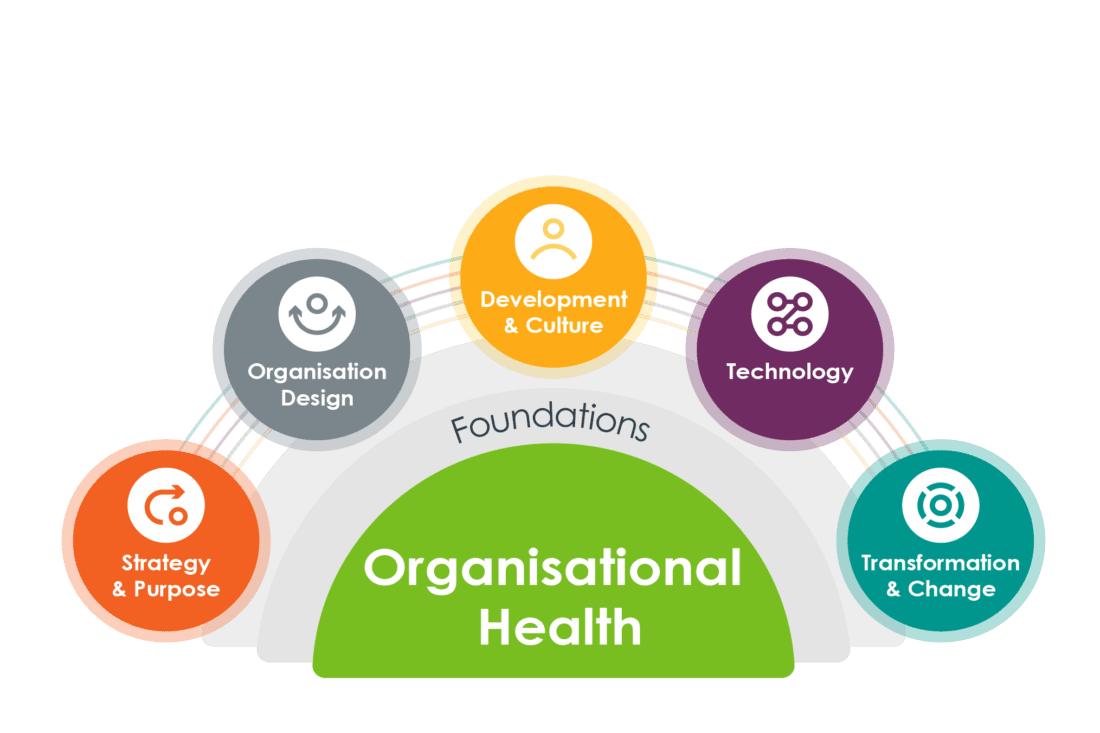
In today’s environment, there is a demand for highly-skilled people, and the competition to attract and retain top talent is becoming a harder battle to fight. Organisations face a challenge retaining their top talent due to a shift in priorities as employees are looking for a more comprehensive employee experience and employee value proposition, prompting them to explore other career opportunities.
As a result, companies are now exploring new talent pools to find candidates that they can nurture and develop and taking time to strengthen their Talent Management Approach and Employee Value Proposition to attract, develop and retain top talent.

![]()
“How can we define our Talent Strategy and refresh our Talent Management Approach?”
![]()
“How can we ensure that our Line Managers are equipped and have the capability to develop our employees”
![]()
“How can we provide our employees with a career framework and development opportunities to grow”
![]()
“How can we ensure that our DEIB strategy enables us to build a diverse and inclusive workforce that attracts, develops and retains diverse talent?”

![]()
“How can we develop a robust Strategic Workforce Plan that addresses our workforce capability needs?”
![]()
“How can we ensure that our Performance Management approach provides opportunities for development and reward”
![]()
“How can we create an Employee Value Proposition that attracts and retains the top talent from the Market?”
We ensure that all of the foundations that underpin organisational health are in place, healthy and are enabling your organisation to be high-performing.
To understand how a business is performing, we believe that the health of an organisation should be considered in its entirety – from the strategy to the process and everything in between. This ensures the right interventions can be made to produce the outcomes the business desires.


The organisation’s Talent Strategy and Strategic Workforce Plan must support the business strategy to ensure that the workforce has the skills and capability to deliver on strategic goals.


Talent Management is about attracting, retaining and developing the best talent. It’s important to make sure the right people are in the right roles with the right skills to deliver the Strategy, Op Model, or drive a Transformation.

Line Managers are the spearheads of Transformation, Change and Employee Experience. It’s important to make sure that they are supported and have the capability to succeed in their role.